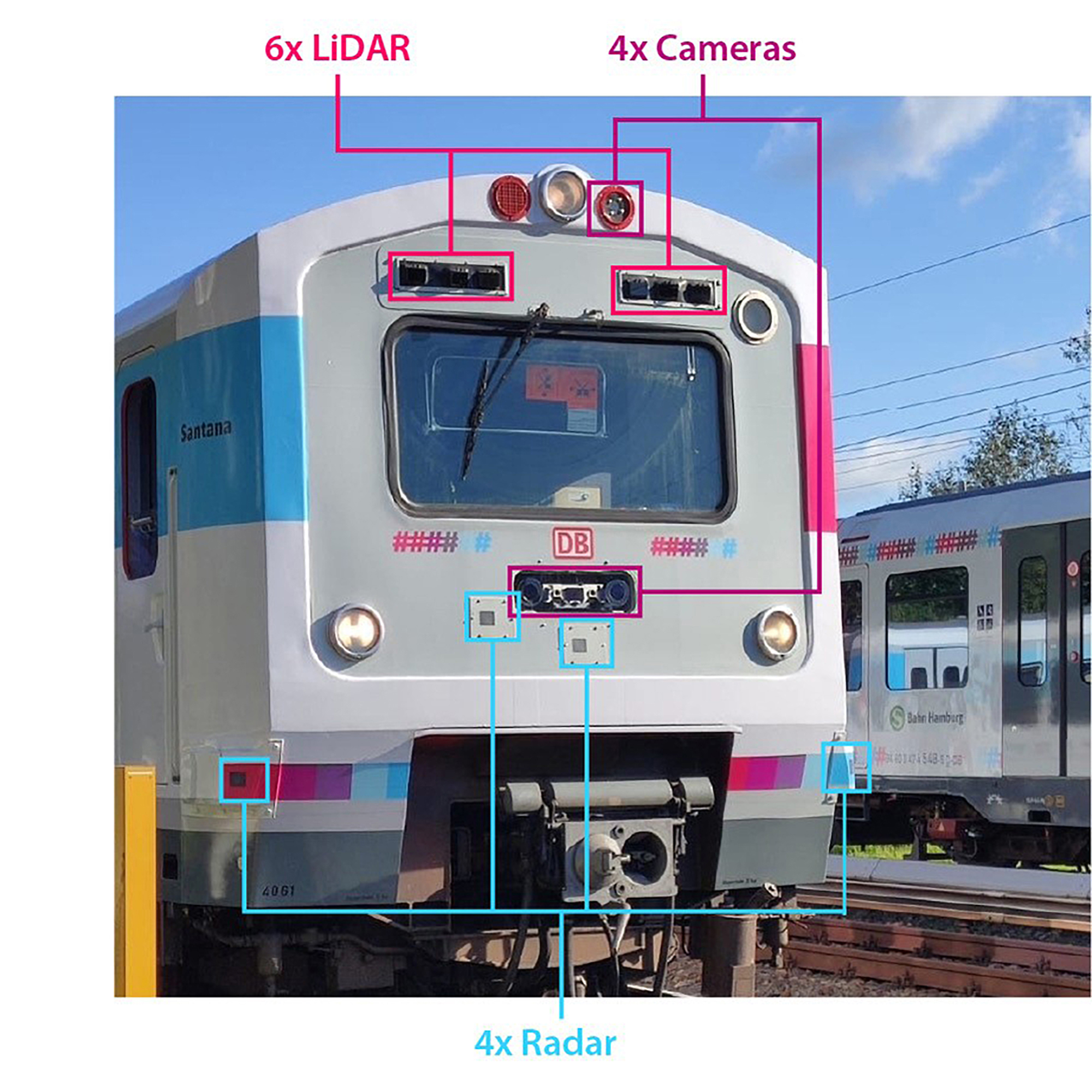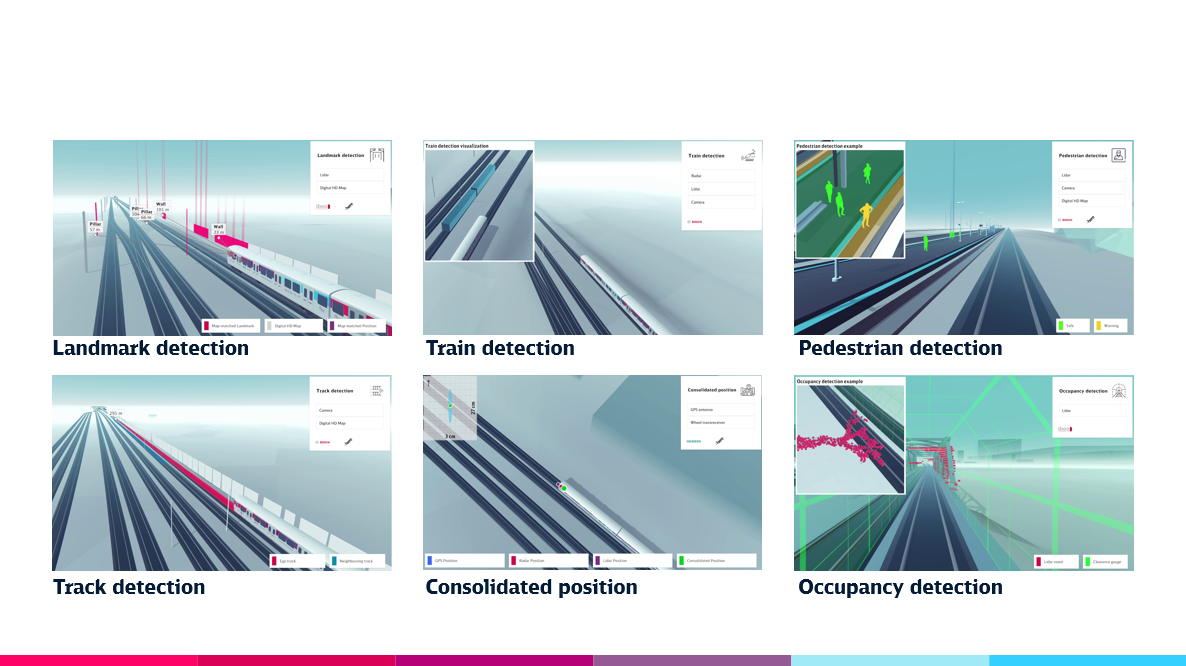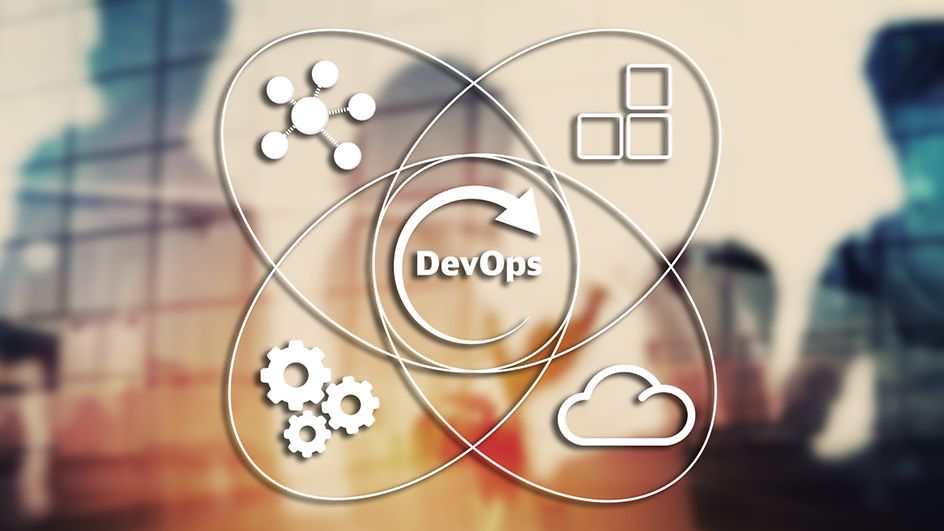DevOps
Article: Azure DevOps for the rail transport of tomorrow
06/2022 - In 2021, visitors to the ITS World Congress in Hamburg experienced a premiere for the rail industry: for the first time, Digital Rail for Germany together with renowned industry partners equipped a multiple unit train with an integrated system of sensor-based environmental perception, localisation and a digital map. Microsoft's Azure DevOps played an important role in the development of the technology.
The ITS World Congress in Hamburg in October 2021 offered a real glimpse into the future of rail transport. The converted S-Bahn of the Sensors4Rail project made special trips through the city equipped with ultra-modern sensors at the front of the train in a pilot project by Digital Rail Germany that points the way to the digital future of the railway.
The multiple unit is full of complex software, state-of-the-art sensors and powerful computer hardware. As one of two innovative projects by Digital Rail Germany and its cooperation partners, Sensors4Rail caused something of a stir at the ITS World Congress in Hamburg.
Dr Sebastian Skibinski (Software Lead, Digital Rail Germany – Sensors4Rail, DB Netz AG) is an expert in Sensors4Rail's digital software: "The prototype presented is a very complex system. Its sensor technology and computing units are capable of processing the captured sensor data in real time."
A perfect interplay
A large number of software components specified and developed by DB Netz AG and project partners such as Siemens Mobility, Bosch, IBEO Automotive Systems and HERE Technologies run on these computing units.
All of these software components exchange information and work together in a rather complex way. The elaborate yet perfectly coordinated interaction between these software components made the various functions showcased in the Sensors4Rail project possible in the first place.
The Azure DevOps cloud solution enables software elements developed by various partners to be combined collaboratively, to undergo further development and testing, and lastly to be made available as a software image.
State-of-the-art sensors for environmental perception and localisation provide precise information about the train's surroundings and exact position. Based on this data, trains can be optimally controlled in the future to run at shorter intervals, which would bring more capacity to the railways.
The cloud is key
Various cloud solutions play an important role. Microsoft's cloud solution Azure DevOps is used for software development and deployment while Amazon's cloud solution AWS is used to receive and provide the sensor data for the project.
"Enablers like Azure DevOps are fundamentally important for large-scale projects."

Referencing the special role of enablers such as Azure DevOps in complex projects, Dr Sebastian Skibinski said: "In projects of this size, an enabler is fundamentally important for software development, for running tests and for deployment."
"Without this basis, changes to software components and work on common interfaces would have had to take place by e-mail, for example," says Skibinski. However, with the help of Microsoft's cloud solution, it was possible to work collaboratively on software components and their interfaces. Downstream software development processes were automated.
A win win
Stephan Witt (Product Owner, Azure DevOps Team) found the access to DB Systel's portfolio of strategic partners particularly advantageous for the group partners because the products and services included meet all IT security and data protection guidelines.
"The cooperation with Microsoft was excellent."

Large-scale software projects of DB companies are thus built on solid, secure foundations right from the start. "And the group partners can be sure that the strategic partner's solution is scalable and can be tailored to specific needs," Witt continues.
This is why Microsoft's Azure DevOps was used for the Sensors4Rail project. "As in past projects, the cooperation with Microsoft was excellent," commented Witt. All the expectations of the project stakeholders were met and, for Microsoft, its first pilot project with the DB Group was a resounding success: Azure DevOps successfully completed the prototype phase in mid-2021 and is now available to all DB colleagues via the DB Systel portfolio.
Continuous development
"The platform is continually being improved," says Stephan Witt. "We want to capture results and lessons learned since these will provide important insights for future projects."
The DevOps team at DB Systel always work according to DevOps principles, implementing new requirements and feedback in a compliant manner and supporting continued operation. Both are also carried out in Azure DevOps to meet future requirements and demands within DB Group.
What is the DevOps principle at DB Systel?
DevOps is an acronym of the terms development and operations. It combines the two sub-disciplines of software development and software operations management. Therefore, DevOps teams are not only responsible for developing an application but also for ensuring that it runs in a stable manner according to the principle "You build it, you run it". Optimised collaborations of this kind combine people, processes and technologies in such a way as to serve customer needs better and faster, and to ensure greater security and compliance. For more information and details, see the DB Systel video (German only): 244 Sekunden DevOps bei der Deutschen Bahn – Was ist das und wie geht das?
The Sensors4Rail project is now entering its second phase. Numerous measurement runs are planned from 2022 to 2023. The primary focus of the second phase is sensor data acquisition. By expanding the test area to include other routes in the Hamburg S-Bahn network, valuable insights can be gained into the performance of the functions in different scenarios and line sections. Increasing the diversity of the data is an additional focus. Besides adding new test lines, this will be achieved by recording raw data in a wide range of weather conditions and at different times of the day and night. The raw data from the sensors will serve as the basis for the ongoing further development of the system through continuous neural network training. Enablers such as Microsoft's Azure DevOps will play a key role in this too.




